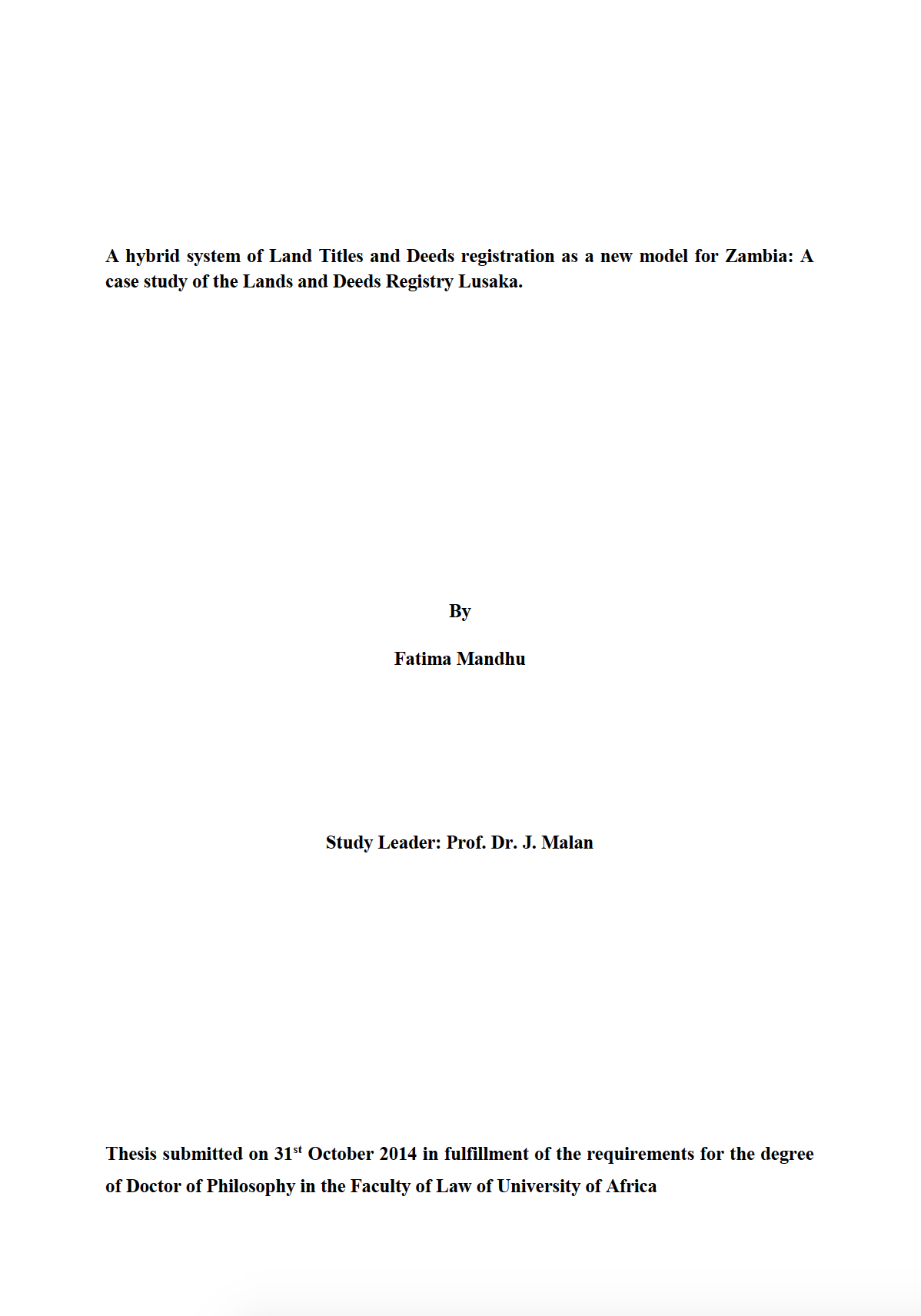A hybrid system of Land Titles and Deeds registration as a new model for Zambia: A case study of the Lands and Deeds Registry Lusaka
Anywhere in the world land is the most important natural wealth for the country. The availability of land and its use are a vital part of human existence. Land records, therefore, are of great concern to every country’s government as well as every individual who owns, occupies, uses or has an interest in a parcel of land. In relation to land a person will feel secured or safe with regards to land rights if she has security of tenure and security of tenure is a question of fact.


